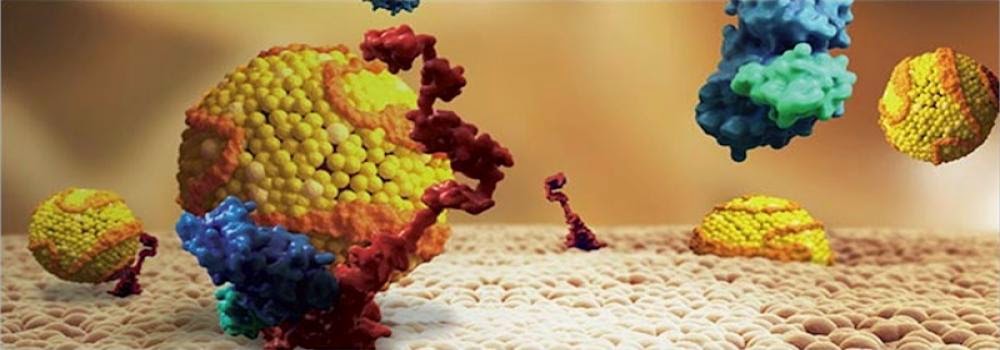Soft and waxy lipid cholesterol has gained a maligned status these days. However, it is essential for building and maintaining cellular membranes, hormone synthesis
and other vital body functions. Since these fat molecules don’t dissolve in the blood stream, they need a special transportation system to travel through the human body and that is why it is mixed with the protein particles, known as lipoproteins. Lipids are mainly classified into triglycerides, total cholesterol (TC), high-density lipoprotein (HDL), low-density lipoprotein (LDL) and very low density lipoprotein (VLDL). Excess calories consumed through food is converted to triglycerides and stored in fat cells, but on the other hand LDL and HDL are produced by the liver. Low-density lipoprotein is considered as the ‘bad cholesterol’ because it contributes to the plaque formation and fatty deposits of blood vessels. However, high density lipoprotein is known as the ‘good cholesterol’ as it picks up the excess LDL cholesterol from the arteries and takes it back to the liver for processing.
A condition with abnormally higher or lower levels of lipid concentrations in the blood stream is
known as dyslipidemia. Why it is a risky factor? Patients with higher levels of bad cholesterol are at increased risk of coronary heart disease and stroke. Cholesterol deposits in the coronary arteries leads to reduced supply of blood to the heart, resulting in myocardial ischemia or angina. Opting for the effective dyslipidemia treatment is essential for restoring the body’s metabolic process efficiently. Major causes of abnormal changes in lipid profile include unhealthy lifestyle and eating habits. Most of the physicians advise dietary and lifestyle modifications as the first step of an effective dyslipidemia treatment.
Hyperlipidaemia, also known as hyperlipoproteinemia is a subset of dyslipidemia. Characterised by an excess amount of lipids in the blood stream, hyperlipidaemia slows down the metabolic functions of the body. Elevated levels of fats in the blood stream speed up the plaque accumulation which further leads to narrowing of arteries. As mentioned above, the first line of defence against the risky hyperlipidemia is opting for a healthy lifestyle. However, in some cases, medications are prescribed by the physicians to treat inherited forms of risky hyperlipidemia. Correlation between hyperlipoproteinemia and coronary vascular diseases has been proved by the researchers. So it is essential to treat this critical condition as early as possible to stay away from the risk of heart disease, stroke and other health implications.
















0 comments:
Post a Comment